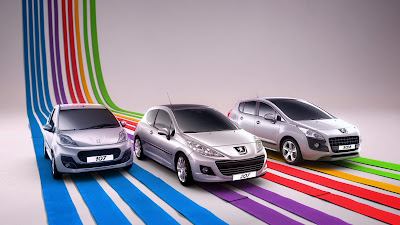The spike in South Korean car sales in Europe the past few years has the French
worried as at the same time they are seeing their numbers drop amidst the debt
crisis that has engulfed the continent.
Just last year, sales of Korean cars in the European Union grew 24 percent,
even though the overall market contracted. French carmakers, on the other hand,
saw their sales drop with PSA Peugeot Citroen announcing plans to slash 8,000
jobs.
As a result, France has officially sent a request to the EU Commission to
monitor South Korean car exports, a move seen by many analysts as the first step
to a possible re-introduction of tariffs only a year after a free-trade deal
with the Asian country came into effect.
"The European Commission confirms it has received a note from the French
authorities requesting ... prior surveillance measures for South Korean car
imports," EU Trade Spokesman John Clancy said in a statement. "The Commission is
reviewing carefully the request."
If the EU accepts France's request, local carmakers will be able to obtain
detailed information including the type and number of products scheduled for
export to Europe before the cars arrive from South Korea.
In the event that the EU Commission takes one more step and scraps the
free-trade agreement with Seoul, then Europe will be able to impose
protectionist restrictions to South Korean exports.
However, as pointed out by Reuters that broke the story, despite the fact
that South Korean exports to the EU grew by 40 percent to 345,000 units since
the deal was signed on July 1, 2011, that number is well below the 640,000 units
imported in 2007.
The reason for this discrepancy is that South Korean carmakers like Hyundai
and Kia have increased their production capacity in European factories in the
Czech Republic and Turkey.
"The growth of Hyundai in Europe is based on products designed, engineered
and built in Europe," Andreas Brozat, a spokesman for Hyundai told Reuters.
"Less than 12 percent of the 232,454 Hyundai cars registered in Europe during
the first half of 2012 were built in Korea, while 70 percent came from the
European region."




















0 comments:
Post a Comment